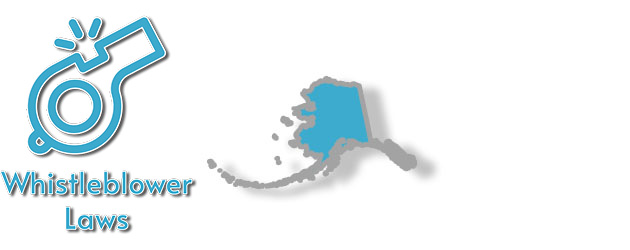
A summary of Alaska Whistleblower laws
Alaska follows the employment at-will doctrine. This means employees can be relieved of their work for any reason or no reason. However, employers can be found guilty of wrongful dismissal if a court finds the reason for dismissal violated public policy or any of Alaska’s statutory protections. Statutory protections are usually specific and only cover certain areas such as workers’ compensation and workplace safety, whereas public policy constitutes judgments and decisions that are made under common law.
This is a summary of Alabama Whistleblower Laws, make sure to check out the Federal Whistleblower Laws as well.
Whistleblower rights in Alaska
Common-Law Protections in Alaska
Alaska courts normally apply public policy exception as a remedy to the employment at-will doctrine. This means employees can sue their employers if they were fired for reasons that violate the public policy of Alaska. To decide whether an employer violated the state’s public policy, the judges will rely on the state’s statutory protections and constitutional provisions. So, for example, if the constitution endorses a safe working environment through an act, an employer who fires someone for filing a complaint under the act can be found guilty of violating public policy.
Alaska Statutory Protections
Public Employees
Public employers are not allowed to discharge, threaten, or discriminate against an employee if the employee or a representative of the employee reports a matter of public concern to the relevant public entity. In this instance, a matter of public concern refers to something that can endanger the public’s health or safety, abuse of authority, or violations of any law or regulation. Alaska Stat. § 39.90.100.
Workplace Discrimination
Under this statute, employers are prohibited from discharging or discriminating against an employee in retaliation for opposing unlawful employment practices relating to discrimination or for filing a complaint, testifying, or assisting in a proceeding under the state’s discrimination laws. It is also unlawful for labor organizations to expel or discriminate in any way an employee or employer or any of its members because of the person’s sex, marital status, changes in marital status, pregnancy, parenthood, age, race, religion, physical or mental disability, color, or national origin. Alaska Stat. § 18.80.220.
Occupational Safety and Health
Alaska Occupational Safety and Health (AKOSH) is responsible for enforcing occupational safety and health standards in Alaska. Under this statute, employees may not be discharged, discriminated against, or suffer retaliation of any form due to filing a safety and health complaint to AKOSH, or for participating in an AKOSH enforcement or proceeding. Alaska Stat. § 18.60.010-105.
Wage and Overtime compensation
The state has a public policy to establish minimum wage and overtime compensation standards. Alaska Stat. § 23.10.050. So it is illegal for an employer to discharge or discriminate against an employee for filing a complaint or starting a proceeding or testifying in a proceeding that relates to this statute. Alaska Stat. § 23.10.135.
Workers’ compensation
It is illegal for an employer to discharge or discriminate in hiring, promotion, or retention policies against an employee for filing a workers’ compensation crime. Alaska Stat. § 23.30.247.
Whistleblower Hotlines in Alaska
To file a complaint under the Occupational Safety and Health statute, call 1-800-321-OSHA (6742).
To file a workplace discrimination complaint, call the Alaska State Commission for Human Rights hotline: 907-274-4692.
To file a complaint under workers’ compensation and wages statutes or under common law protections, call the Alaska Department of Labor and Workforce Development hotline: (907) 465-2709
Whistleblower Retaliation Claims in Alaska
Whistleblowers are required to file a lawsuit within 3 years of the retaliation unless stated otherwise by the relevant statute. TheOccupational Safety and Health statute requires employees or whistleblowers to file a complaint within 30 days of the retaliation.
Retaliation and Violation Penalties in Alaska
The penalties for violating any of the state’s statutes may include paying the employee back wages, punitive damages, reinstatement of the employee to the previous position, or any other appropriate relief. For persons who attempt or violate the public employee statute, a civil fine not greater than $10,000 may be imposed. Also, people who try to stop someone from making a report or participating in a matter under the public employee statute may have a fine of not more than $10,000 imposed on them.
Click for an overview of the Federal Whistleblower Laws .
More Alaska Laws